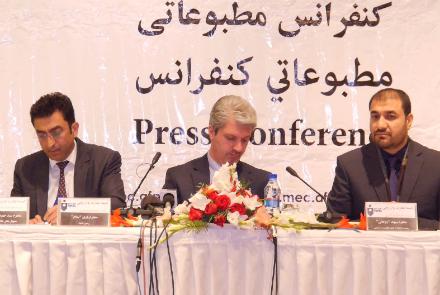The Independent Joint Anti-Corruption Monitoring and Evaluation Committee (MEC) on Sunday released its third evaluation report on fighting corruption in Afghanistan’s legal and judicial institutions.
The report says that in the last one year, progresses have been made in bringing reforms in the legal and judicial institutions.
The report is a follow-up on the implementation of recommendations suggested to Attorney General’s Office (AGO) and other legal and judicial institutions by the MEC to address corruption vulnerabilities.
According to the report, in 2017 MEC had made 51 recommendations to the legal and judicial institutions for addressing vulnerabilities to corruption and bringing reforms of which a part of the recommendations have been implemented.
“From 51 recommendations, up to now 25 recommendations have been implemented completely, 21 recommendations are in implementation phase or have been implemented to some extent,” said Bari Salam, chairman of MEC.
Officials from MEC said the recommendations were about bringing reforms in structure, planning, budgeting, monitoring, addressing complaints and case management in the relevant departments.
“We will give the departments a short time and then will again follow-up our recommendations,” said Maiwand Rouhani, deputy head of MEC.
MEC’s evaluation on anti-corruption efforts released as a report by the Integrity Watch Afghanistan released a month ago labeled legal and judicial institutions as the most corrupt institutions in the country.
“We cannot say that fight have not been done against corruption and we cannot say the fight was hundred percent successful,” Jawad Nasiri, university lecturer said.
Fighting corruptions in government departments was one of the main commitment of the National Unity Government, but after nearly five years of the administration, reports indicate that corruptions has not been fought seriously.
“Bringing reforms and fighting corruption was one of the main commitments of the National Unity Government and it is our priority. We are witnessing progress in bringing reforms, but it is not enough,” said Omid Maisam, deputy spokesman of Chief Executive Abdullah Abdullah.


